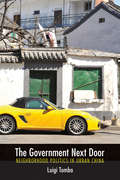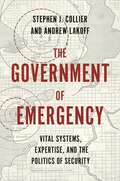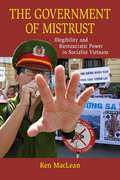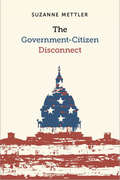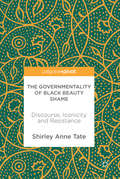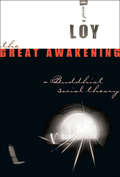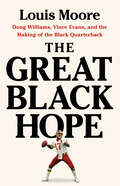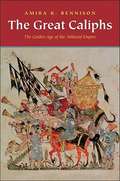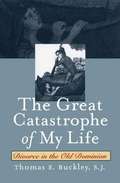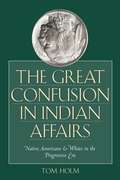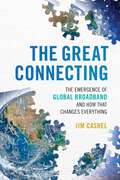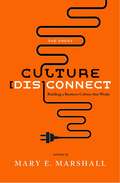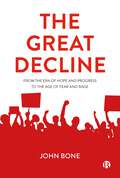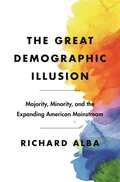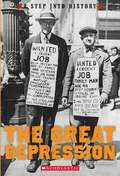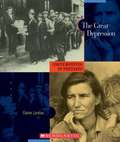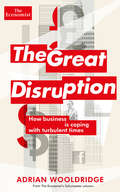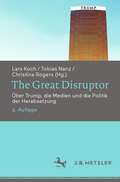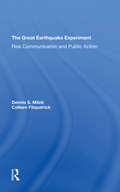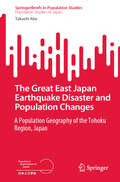- Table View
- List View
The Government Manager's Guide to Project Management
by Jonathan Weinstein PMP Timothy Jacques PMPThis realistic cross-section of the project management discipline in the federal arena will help anyone leading, working on, or affecting the direction of a project team. It covers the entire scope of project management from organization to methodology, technology to leadership. This volume focuses on the three project management organizational dimensions of culture, systems, and structure. Federal practices and successes in the areas of communication, project leadership, stakeholders, and key competencies are highlighted. The book offers clear and practical advice drawn from a variety of project management successes in the federal arena.
The Government Next Door: Neighborhood Politics in Urban China
by Luigi TombaChinese residential communities are places of intense governing and an arena of active political engagement between state and society. In The Government Next Door, Luigi Tomba investigates how the goals of a government consolidated in a distant authority materialize in citizens' everyday lives. Chinese neighborhoods reveal much about the changing nature of governing practices in the country. Government action is driven by the need to preserve social and political stability, but such priorities must adapt to the progressive privatization of urban residential space and an increasingly complex set of societal forces. Tomba's vivid ethnographic accounts of neighborhood life and politics in Beijing, Shenyang, and Chengdu depict how such local "translation" of government priorities takes place. Tomba reveals how different clusters of residential space are governed more or less intensely depending on the residents' social status; how disgruntled communities with high unemployment are still managed with the pastoral strategies typical of the socialist tradition, while high-income neighbors are allowed greater autonomy in exchange for a greater concern for social order. Conflicts are contained by the gated structures of the neighborhoods to prevent systemic challenges to the government, and middle-class lifestyles have become exemplars of a new, responsible form of citizenship. At times of conflict and in daily interactions, the penetration of the state discourse about social stability becomes clear.
The Government of Emergency: Vital Systems, Expertise, and the Politics of Security (Princeton Studies in Culture and Technology #28)
by Stephen J. Collier Andrew LakoffThe origins and development of the modern American emergency stateFrom pandemic disease, to the disasters associated with global warming, to cyberattacks, today we face an increasing array of catastrophic threats. It is striking that, despite the diversity of these threats, experts and officials approach them in common terms: as future events that threaten to disrupt the vital, vulnerable systems upon which modern life depends.The Government of Emergency tells the story of how this now taken-for-granted way of understanding and managing emergencies arose. Amid the Great Depression, World War II, and the Cold War, an array of experts and officials working in obscure government offices developed a new understanding of the nation as a complex of vital, vulnerable systems. They invented technical and administrative devices to mitigate the nation’s vulnerability, and organized a distinctive form of emergency government that would make it possible to prepare for and manage potentially catastrophic events.Through these conceptual and technical inventions, Stephen Collier and Andrew Lakoff argue, vulnerability was defined as a particular kind of problem, one that continues to structure the approach of experts, officials, and policymakers to future emergencies.
The Government of Mistrust
by Ken MacleanFocusing on the creation and misuse of government documents in Vietnam since the 1920s, "The Government of Mistrust" reveals how profoundly the dynamics of bureaucracy have affected Vietnamese efforts to build a socialist society. In examining the flurries of paperwork and directives that moved back and forth between high- and low-level officials, Ken MacLean underscores a paradox: in trying to gather accurate information about the realities of life in rural areas, and thus better govern from Hanoi, the Vietnamese central government employed strategies that actually made the state increasingly illegible to itself. MacLean exposes a falsified world existing largely on paper. As high-level officials attempted to execute centralized planning via decrees, procedures, questionnaires, and audits, low-level officials and peasants used their own strategies to solve local problems. To obtain hoped-for aid from the central government, locals overstated their needs and underreported the resources they actually possessed. Higher-ups attempted to re-establish centralized control and legibility by creating yet more bureaucratic procedures. Amidst the resulting mistrust and ambiguity, many low-level officials were able to engage in strategic action and tactical maneuvering that have shaped socialism in Vietnam in surprising ways.
The Government-Citizen Disconnect
by Suzanne MettlerAmericans’ relationship to the federal government is paradoxical. Polls show that public opinion regarding the government has plummeted to all-time lows, with only one in five saying they trust the government or believe that it operates in their interest. Yet, at the same time, more Americans than ever benefit from some form of government social provision. Political scientist Suzanne Mettler calls this growing gulf between people’s perceptions of government and the actual role it plays in their lives the "government-citizen disconnect." In The Government-Citizen Disconnect, she explores the rise of this phenomenon and its implications for policymaking and politics. Drawing from original survey data which probed Americans’ experiences of 21 federal social policies -- such as food stamps, Social Security, Medicaid, and the home mortgage interest deduction -- Mettler shows that 96 percent of adults have received benefits from at least one of them, and that the average person has utilized five. Overall usage rates transcend social, economic, and political divisions, and most Americans report positive experiences of their policy experiences. However, the fact that they have benefited from these policies has little positive effect on people’s attitudes toward government. Mettler finds that shared identities and group affiliations, as well as ideological forces, are more powerful and consistent influences. In particular, those who oppose welfare tend to extrapolate their unfavorable views of it to government in general. Deep antipathy toward the government has emerged as the result of a conservative movement that has waged a war on social welfare policies for over forty years, even as economic inequality and benefit use have increased. Mettler finds that voting patterns exacerbate the government-citizen disconnect, as those holding positive views of federal programs and supporting expanded benefits have lower rates of political participation than those holding more hostile views of the government. As a result, the loudest political voice belongs to those who have benefited from policies but who give government little credit for their economic well-being, seeing their success more as a matter of their own deservingness. This contributes to the election of politicians who advocate cutting federal social programs. According to Mettler, the government-citizen disconnect frays the bonds of representative government and democracy. The Government-Citizen Disconnect illuminates a paradox that increasingly shapes American politics. Mettler's examination of hostility toward government at a time when most Americans will at some point rely on the social benefits it provides helps us better understand the roots of today's fractious political climate.
The Governmentality of Black Beauty Shame
by Shirley Anne TateThis book uses the experiences and conversations of Black British women as a lens to examine the impact of discourses surrounding Black beauty shame. Black beauty shame exists within racialized societies which situate white beauty as iconic, and as a result produce Black ‘ugliness’ as a counterpoint. At the same time, Black Nationalist discourses present Black-white ‘mixed race’ women as bodies out of place within the Black community. In the examples analysed within the book, women disidentify from both the iconicities of white beauty and the discourses of Black Nationalist darker-skinned beauty, negating both ideals. This demonstration of Foucaldian counter-conduct can be read as a form of disalienation from the governmentality of Black beauty shame. This fascinating volume will be of interest to students and scholars of Black identity, Black beauty and discourse analysis.
The Grammar Rules of Affection: Passion and Pedagogy in Sidney, Shakespeare, and Jonson
by Ross KnechtRenaissance writers habitually drew upon the idioms and images of the schoolroom in their depictions of emotional experience. Memorable instances of this tendency include the representation of love as a schoolroom exercise conducted under the disciplinary gaze of the mistress, melancholy as a process of gradual decline like the declension of the noun, and courtship as a practice in which the participants are arranged like the parts of speech in a sentence. The Grammar Rules of Affection explores this synthesis of the affective and the pedagogical in Renaissance literature, analysing examples from major texts by Philip Sidney, William Shakespeare, and Ben Jonson. Drawing on philosophical approaches to emotion, theories of social practice, and the history of education, this book argues that emotions appear in Renaissance literature as conventional, rule-guided practices rather than internal states. This claim represents a novel intervention in the historical study of emotion, departing from the standard approaches to emotions as either corporeal phenomena or mental states. Combining linguistic philosophy and theory of emotion, The Grammar Rules of Affection works to overcome this dualistic crux by locating emotion in the expressions and practices of everyday life.
The Grass Ceiling: On Being a Woman in Sport
by Eimear Ryan'A book which will very soon be acknowledged as a classic of Irish sportswriting' Ciarán MurphyWhat is it like to be female in a male-dominated sporting world? If you play with the boys, more people pay attention - but you get treated like an alien. Playing with other girls or women means you have to accept smaller audiences, diminished status and - for professionals - lower pay.And what if, as is the case for camogie player Eimear Ryan, your sport has a completely different name when women play it? What if you don't feel entirely comfortable in an all-female sporting environment because you're shy, bookish, not really one of the girls?In The Grass Ceiling, acclaimed novelist Eimear Ryan digs deep into the confluence of gender and sport, and all the questions it throws up about identity, status, competition and self-expression. At a time when women's sport is on the rise but still a long way from equality, it is a sharp, nuanced and heartfelt exploration of questions that affect everyone who loves sport.Praise for The Grass Ceiling'A gorgeous memoir about a life lived in sport, specifically a female, Irish rural life. I read it in two sittings.' Malachy Clerkin, Irish Times'A love letter to the GAA and a diatribe against the idea sport is not for women' Kathleen McNamee, Irish Times'Brilliant ... Ryan's bold and deep search into so many of those internalised questions provides a fascinating collage of emotional detail' Christy O'Connor, Irish Examiner 'Lyrical, urgent, wise and bracing' Irish Times
The Great American Sports Page: A Library of America Special Publication
by Charles P. Pierce John SchulianA first-of-its-kind celebration of the newspaper scribes who made sportswriting a glorious popular art, and immortalized America's greatest games and athletesSpanning nearly a century, The Great American Sports Page presents essential columns from more than three dozen masters of the press-box craft. These unforgettable dispatches from World Series, Super Bowls, and title bouts for the ages were written on deadline with passion, spontaneity, humor, and a gift for the memorable phrase. Read avidly day in and day out by a sports-mad public, these columnists became journalistic celebrities in their home cities, their coverage trusted and savored, their opinions hotly debated. Some even helped change the games they wrote about. Gathered here in a groundbreaking anthology, their writings capture some of sport's most enduring moments and many of its all-time greats: Babe Ruth, Jackie Robinson, Muhammad Ali, and Michael Jordan among them. But the best American sportswriters also found ways to write powerfully about lesser-known athletes and to convey, often with heartbreaking honesty and insight, the less glamorous and more tragic facets of the games we love. In its survey of the finest American sportswriting from Ring Lardner to Thomas Boswell, from Red Smith and Jimmy Cannon to Bob Ryan and Michael Wilbon, The Great American Sports Page takes the measure of the human richness, complexity, and competitive spirit of sports and the athletes who continue to fascinate and inspire us.
The Great Awakening
by David R. LoyThe most essential insight that Buddhism offers is that all our individual suffering arises from three and only three sources, known in Buddhism as the three poisons: greed, ill-will, and delusion. In The Great Awakening, scholar and Zen teacher David Loy examines how these three poisons, embodied in society's institutions, lie at the root of all social maladies as well. The teachings of Buddhism present a way that the individual can counteract these to alleviate personal suffering, and in the The Great Awakening Loy boldly examines how these teachings can be applied to institutions and even whole cultures for the alleviation of suffering on a collective level. This book will help both Buddhists and non-Buddhists to realize the social importance of Buddhist teachings, while providing a theoretical framework for socially engaged members of society to apply their spiritual principles to collective social issues. The Great Awakening shows how Buddhism can help our postmodern world develop liberative possibilities otherwise obscured by the anti-religious bias of so much contemporary social theory.
The Great Black Hope: Doug Williams, Vince Evans, and the Making of the Black Quarterback
by Louis MooreThe story of two pioneering Black NFL football players that changed the face of America&’s game for generations to come. There is no position in pro sports more important than an NFL quarterback. But quarterbacking was the exclusive domain of white players for many years, and when Doug Williams and Vince Evans arrived in the league in the late 1970s, they got death threats, faced racist questions, and knew that a single mistake could end their careers. The Great Black Hope tells the twin stories of Vince Evans,an electrifying dual-threat quarterback ahead of his time, and of Doug Williams, the first Black quarterback to become a champion. Moore shows how easily Williams' triumphant story could have gone wrong and how his success changed the game and the country. A skillful blend of game-time drama and social commentary, this book captures unheralded heroes of the NFL and all that they meant, both on the field and off.
The Great Caliphs: The Golden Age Of The 'abbasid Empire
by Amira K. BennisonIn this accessibly written history, Amira K. Bennison contradicts the common assumption that Islam somehow interrupted the smooth flow of Western civilization from its Graeco-Roman origins to its more recent European and American manifestations. Instead, she places Islamic civilization in the longer trajectory of Mediterranean civilizations and sees the 'Abbasid Empire (750-1258 CE) as the inheritor and interpreter of Graeco-Roman traditions. At its zenith the 'Abbasid caliphate stretched over the entire Middle East and part of North Africa, and influenced Islamic regimes as far west as Spain. Bennison's examination of the politics, society, and culture of the 'Abbasid period presents a picture of a society that nurtured many of the "civilized" values that Western civilization claims to represent, albeit in different premodern forms: from urban planning and international trade networks to religious pluralism and academic research. Bennison's argument counters the common Western view of Muslim culture as alien and offers a new perspective on the relationship between Western and Islamic cultures.
The Great Catastrophe of My Life
by Thomas E. BuckleyFrom the end of the Revolution until 1851, the Virginia legislature granted most divorces in the state. It granted divorces rarely, however, turning down two-thirds of those who petitioned for them. Men and women who sought release from unhappy marriages faced a harsh legal system buttressed by the political, religious, and communal cultures of southern life. Through the lens of this hostile environment, Thomas Buckley explores with sympathy the lives and legal struggles of those who challenged it.Based on research in almost 500 divorce files, The Great Catastrophe of My Life involves a wide cross-section of Virginians. Their stories expose southern attitudes and practices involving a spectrum of issues from marriage and family life to gender relations, interracial sex, adultery, desertion, and domestic violence. Although the oppressive legal regime these husbands and wives battled has passed away, the emotions behind their efforts to dissolve the bonds of marriage still resonate strongly.
The Great Confusion in Indian Affairs: Native Americans & Whites in the Progressive Era
by Tom HolmThe United States government thought it could make Indians "vanish. " After the Indian Wars ended in the 1880s, the government gave allotments of land to individual Native Americans in order to turn them into farmers and sent their children to boarding schools for indoctrination into the English language, Christianity, and the ways of white people. Federal officials believed that these policies would assimilate Native Americans into white society within a generation or two. But even after decades of governmental efforts to obliterate Indian culture, Native Americans refused to vanish into the mainstream, and tribal identities remained intact. This revisionist history reveals how Native Americans' sense of identity and "peoplehood" helped them resist and eventually defeat the U. S. government's attempts to assimilate them into white society during the Progressive Era (1890s-1920s). Tom Holm discusses how Native Americans, though effectively colonial subjects without political power, nonetheless maintained their group identity through their native languages, religious practices, works of art, and sense of homeland and sacred history. He also describes how Euro-Americans became increasingly fascinated by and supportive of Native American culture, spirituality, and environmental consciousness. In the face of such Native resiliency and non-Native advocacy, the government's assimilation policy became irrelevant and inevitably collapsed. The great confusion in Indian affairs during the Progressive Era, Holm concludes, ultimately paved the way for Native American tribes to be recognized as nations with certain sovereign rights.
The Great Connecting: The Emergence of Global Broadband and How That Changes Everything
by Jim CashelJim Cashel shares his predictions of what may be the biggest event in human history, and it will happen in just the next few years. For the first time, affordable broadband will reach even the poorest and most remote of global citizens, giving access to information, communications, identity authentication, government programs, global philanthropy, online banking, telehealth, distance education, and other powerful services heretofore impossible. Cashel speaks with the major players driving the broadband revolution and travels to the most remote corners of the globe to consider the changes in our world about to take place.
The Great Culture [Dis]Connect: Building a Business Culture That Works
by Mary MarshallTrace a company's breakdown back to various points that added up and created a destructive company cultureThe Great Culture [Dis]Connect is a tool for entrepreneurs, executives, managers, and anyone concerned with the work environment and company culture they are a part of. Filled with both positive and negative examples of company culture, this book will teach you that a company&’s foundation is its values. These pages contain everything from how to select values based on your company to how to deal with cultural misfits in your company, as well as looking to the future to build toward the legacy you want your company to leave. Intertwined is the story of Automation Engineers, a company that ignores values, culture, integrity, and many other elements essential to a business. Discover how this company completely unravels, and learn from their mistakes. The Great Culture [Dis]Connect is essential for everyone who is serious about business and wants to lead their company to success.
The Great Decline: From the Era of Hope and Progress to the Age of Fear and Rage
by John BoneIt seems clear that many formerly stable societies in wealthy developed countries appear to be falling into an apparent state of ‘permacrisis' accompanied by an increasingly angry and irrational social and political culture that is undermining the peace and stability of our societies and democratic institutions, from the local to the global. Applying an original biosocial approach (the social map), and drawing on ideas and evidence from sociology, history and political economy, to psychology, neuroscience and epigenetics, John Bone argues that conditions in our turbocapitalist and increasingly estranged, media dominated societies have created a toxic environment, deeply damaging to our mental and physical health. As well as shedding new light on our current troubles, Bone also outlines why this leaves us ill prepared to deal with two of the greatest challenges confronting humanity: the rise of AI and automation and how we deal with climate change.
The Great Demographic Illusion: Majority, Minority, and the Expanding American Mainstream
by Richard AlbaWhy the number of young Americans from mixed families is surging and what this means for the country’s future Americans are under the spell of a distorted and polarizing story about their country’s future―the majority-minority narrative―which contends that inevitable demographic changes will create a society with a majority made up of minorities for the first time in the United States’s history. The Great Demographic Illusion reveals that this narrative obscures a more transformative development: the rising numbers of young Americans from ethno-racially mixed families, consisting of one white and one nonwhite parent. Examining the unprecedented significance of mixed parentage in the twenty-first-century United States, Richard Alba looks at how young Americans with this background will play pivotal roles in the country’s demographic future.Assembling a vast body of evidence, Alba explores where individuals of mixed parentage fit in American society. Most participate in and reshape the mainstream, as seen in their high levels of integration into social milieus that were previously white dominated. Yet, racism is evident in the very different experiences of individuals with black-white heritage. Alba’s portrait squares in key ways with the history of immigrant-group assimilation, and indicates that, once again, mainstream American society is expanding and becoming more inclusive.Nevertheless, there are also major limitations to mainstream expansion today, especially in its more modest magnitude and selective nature, which hinder the participation of black Americans and some other people of color. Alba calls for social policies to further open up the mainstream by correcting the restrictions imposed by intensifying economic inequality, shape-shifting racism, and the impaired legal status of many immigrant families.Countering rigid demographic beliefs and predictions, The Great Demographic Illusion offers a new way of understanding American society and its coming transformation.
The Great Depression (A Step Into History)
by Steven OtfinoskiWhen the stock market crashed in October 1929, The world's economy was thrown into disarray. For the next decade, the great Depression left millions of Americans without jobs and forced countless businesses to close. Readers will discover how people struggled to make a living in a time of high unemployment, how the government tried to solve the country's economic troubles and much more.
The Great Depression (Cornerstones of Freedom, 2nd Series)
by Elaine LandauChildren's book on the Great Depression, from October 1929 when the stock market collapsed, through the 1930s, until America recovered.
The Great Disruption: How Business is Coping with Turbulent Times (Economist Books)
by Adrian WooldridgeThe Great Disruption is a collection drawn from Adrian Wooldridge's influential Schumpeter columns in The Economist addressing the causes and profound consequences of the unprecedented disruption of business over the past five years. The Great Disruption has many causes. The internet is spreading faster than any previous technology. Emerging markets are challenging the west’s dominance of innovation as well as manufacturing. Clever management techniques such as "frugal innovation” are forcing companies to rethink pricing. Robots are advancing from the factory floor into the service sector. But these developments are all combining together to shake business life--and indeed life in general--to its foundations. The Great Disruption is producing a new class of winners, many of whom are still unfamiliar: Asian has more female billionaires and CEOs than Europe, for example. It is also producing a growing class of losers: old-fashioned universities that want to continue to operate in the world of talk and chalk; companies that refuse to acknowledge that competition is now at warp speed; and business people who think that we still live in the world of company man. It is forcing everybody to adapt or die: workers realise that they will have to jump from job to job--and indeed from career to career--and institutions realise that they need to remain adaptable and flexible. The Great Disruption is all the more testing because it coincides with the Great Stagnation. The financial crisis has not only reduced most people’s living standards in the west. It has also revealed that the boom years of 2000-20007 were built on credit: individuals and governments were borrowing money to pay for lifestyles that no longer had any real justification. Employees are having to cope with unprecedented change at a time when they are also seeing their incomes flat or declining. Companies are having to respond to revolutionary innovations even as they are seeing their overall markets contract. We are all having to run faster in order to stay in the same place. This book begins with a long introduction explaining the thesis of the book and setting it in a broad historical context. It will also introduce readers to Joseph Schumpeter and explain why his ideas about creative destruction are particularly valuable today.
The Great Disruptor: Über Trump, die Medien und die Politik der Herabsetzung
by Lars Koch Tobias Nanz Christina RogersDer Sturm auf das Kapitol bildet den Höhepunkt einer populistischen Konfrontations- und Mobilisierungsstrategie, die darauf ausgelegt war, Zustimmung durch eine Politik der Herab- und Feindsetzung zu akkumulieren. In der aktualisierten, 2. Auflage geht es weiterhin darum, aus kultur- und medienwissenschaftlicher Perspektive das öffentliche Auftreten von Donald Trump zu untersuchen und zu zeigen, wie der 45. US-Präsident an der gesellschaftlichen Konfrontation unterschiedlicher politischer Gruppen partizipierte, diese kommunikativ weiter eskalierte und von der sich immer radikaler gestaltenden Polarisierung politisch zu profitieren hoffte. Allerdings weitet sich der Untersuchungsfokus und nimmt nunmehr auch die beiden letzten Jahre seiner Amtszeit mit in den Blick, in denen Trump durch immer schrillere Töne im Kontext von Black Live Matters und der Corona-Krise, durch die Anheizung von Verschwörungstheorien und durch radikale Diskreditierung von politischen Verfahren und Institutionen die US-amerikanische Gesellschaft bis an den Rand eines Bürgerkriegs getrieben hat. Diskutiert werden Trumps Mediengebrauch, seine mit Herabsetzungen, Beleidigungen und Unterstellungen arbeitenden Adressierungsstrategien und seine Politik der Affekte. Die Beiträge des Bandes rücken den „great disruptor“ in ein Spannungsfeld von Populärkultur, fragmentierter Öffentlichkeit und rhetorischer Feindsetzung.
The Great Divide: Second Thoughts on the American Dream
by Studs TerkelHere is the America of the 1980s: the yuppies, right-wing fundamentalists, along with the sixties activists, and real estate speculators. How has America changed since then?
The Great Earthquake Experiment: Risk Communication And Public Action
by Dennis Mileti Colleen FitzpatrickThis book portrays the history, causes and future of large earthquakes in the US and traces the evolution of government policy to deal with it. It reviews the range of human actions that can be taken to manage or lessen quake losses and presents a review of the current technology to predict quakes.
The Great East Japan Earthquake Disaster and Population Changes: A population geography of the Tohoku Region, Japan (SpringerBriefs in Population Studies)
by Takashi AbeThe book aims to clarify from a demographic and geographical perspective how population trends of the Tohoku Region were changed as a result of the GEJED. The author shows how different the 2011 GEJED was from past disasters in this region with regard to the impacts on population change in the Tohoku Region. He explains how the recent disaster is different from past disasters, based on the theories of the first and second demographic transitions. He also clarifies the causality between the extent of housing damage and mortality through geographical analysis. Furthermore, this book shows how migration patterns were changed before and after the GEJED, and it identifies the differences between the areas affected by the tsunami and by the nuclear power plant accident.Investigating the GEJED as a case study, the book presents a method to analyze the relationship between natural disasters and population change. This book is especially useful for researchers inthe fields of disaster, environment, and population to better understand the relationship between the environment and population.

